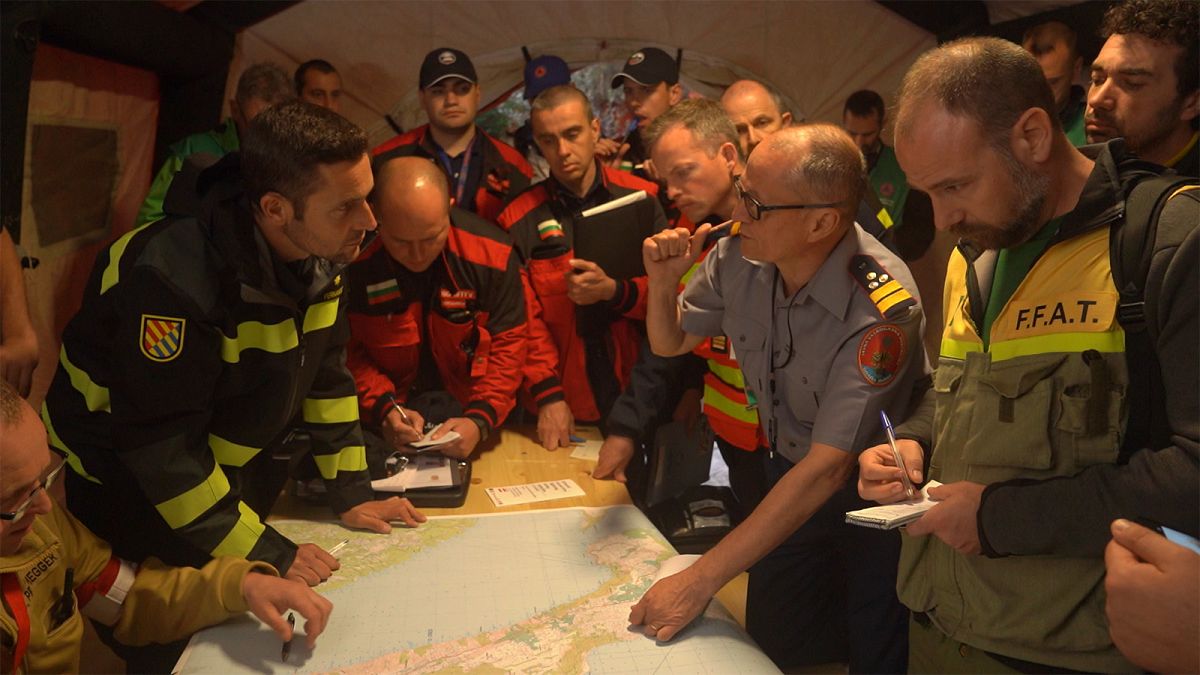European nations are stepping up their preparations to tackle wildfires this summer ahead of an expected record wildfire season.
European nations are stepping up their preparations to tackle wildfires this summer with a joint response force known as RescEU undergoing intensive training in Croatia.
Wildfires in the EU this year have already exceeded the devastation wrought during last year’s blazes, with more than 200,000 hectares burned. And the peak fire season is only just starting.
In 2018, 135,000 hectares were reduced to ashes with only six member states being spared by the flames. Fires killed more than 100 people in Greece in one of the deadliest fire seasons of the century.
As a result, Europe is boosting its firefighting response with the training exercise on the Croatian island of Cres.
The EU’s Commissioner for Humanitarian Aid and Crisis Management, Christos Stylianides, told Euronews that catastrophes and natural disasters “have no borders”.
“Definitely through RescEU we can improve ourselves and we can increase our effective and efficient way to deal with natural disasters.”
Almost 100 vehicles, one helicopter, two Canadairs and around 300 firefighters from seven European countries took part in the four-day exercise, known as CRES-MODEX 2019.
The drill was organised to train EU teams in a realistic environment and get them ready for international missions.
It involved a scenario where simultaneous fires were burning across the island, similar to what Portugal and Greece have experienced.
Victor Fernandez from Spain’s emergency response team said the key aim of the exercise was co-operation.
He told Aid Zone: "Making different teams, from different countries and different languages, work together with the same goal requires a methodology. This exercise allows us to improve the way we cooperate so that we can be much more efficient when the situation becomes real."
The exercise was not about how to put out a fire, but how to work on strategy, planning tactics and managing international teams in unfamiliar territory.
The RescEU teams are on standby to be deployed by the EU Civil Protection Mechanism.
Since 2001, this system of emergency support has already intervened 300 times in some of the most complex emergencies worldwide.
The force has been strengthened ahead of the summer season with a reserve of firefighting planes and helicopters established, along with disaster prevention measures.
Most wildfires are caused by human activity, poor forest management and the degradation of ecosystems. Experts say the key to protecting citizens and forests is still prevention.

